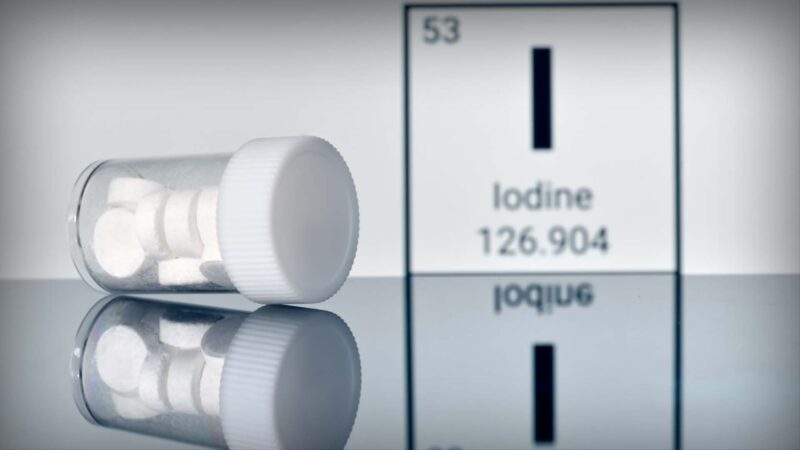ASSOCIATION OF SLEEP DURATION WITH COGNITION AND VASCULAR BRAIN INJURY MODERATED BY HYPERTENSIVE STATUS High blood pressure and shorter sleep may worsen brain decline: study
With
Dr Stephanie Yiallourou, Senior Research Fellow
Turner Institute for Brain & Mental Health, Monash University
Melbourne, Australia
Associate Professor Matthew Pase
Turner Institute for Brain & Mental Health, Monash University
Melbourne, Australia
CASE STUDY
Filmed in Melbourne, Australia| May 2025
People with high blood pressure who also lack sleep may be at increased risk of reduced cognitive performance and greater brain injury, Monash University research has found.
Published in the Journal of the American Heart Association, researchers assessed whether the combined effect of hypertension and short sleep duration had a negative impact on brain health.
They used data from 682 dementia-free Framingham Heart Study participants who completed overnight sleep recordings, self-reported sleep duration questionnaires, blood pressure and cognitive assessments; 637 underwent brain magnetic resonance imaging (MRI).
In those with high blood pressure, shorter sleep duration was associated with poorer executive functioning and markers of brain injury and accelerated brain ageing on MRI. These associations were not observed in people with normal blood pressure.
These results were similar following adjustment for genetic, clinical and demographic variables.
Insufficient sleep is generally defined as less than seven hours. Participants reported sleeping an average of seven hours per night, with 32 percent reporting a short sleep duration of less than six hours per night.
Moderate to severe obstructive sleep apnoea was identified in 16 per cent of individuals, and almost one‐quarter of the overall sample reported using sleeping pills regularly.
“In individuals with hypertension, shorter sleep duration was associated with worse cognitive performance and greater brain injury,” the study found.
“Inadequate sleep has been linked to hypertension and dementia, and though the underlying mechanisms remain unclear, it is possible that short sleep and hypertension interact to increase the risk of cognitive impairment and vascular brain injury.”
While the cohort was based in the US, researchers believe the results would be similar in Australia.
Senior author Associate Professor Matthew Pase, from the Monash University School of Psychological Sciences and Turner Institute for Brain and Mental Health, said short sleep duration was already associated with an increased risk of cognitive impairment and dementia.
He said while short sleep was associated with elevated blood pressure, the combination of short sleep and hypertension on brain health was unclear before this study.
“These findings have significance, given that over one-third of Australians experience sleep problems,” Associate Professor Pase said. “Importantly, sleep problems and hypertension are treatable. Addressing these factors may offer new opportunities for intervention to improve brain health.”
First author Dr Stephanie Yiallourou, from the Monash University School of Psychological Sciences and Turner Institute for Brain and Mental Health, said screening people with high blood pressure for insufficient sleep could allow tailored therapies to improve brain aging and reduce brain injury.
Dr Yiallourou said they could also be targeted for new randomised controlled trials to determine the efficacy of sleep treatments and blood pressure–lowering therapies in preventing or delaying cognitive impairment.
“The next step in this research is to explore whether the double hit of short sleep and hypertension is associated with dementia risk in the long-term,” she said.
This work was supported by an Alzheimer’s Association Grant.
Source: Monash University Media Release
You Might also like
-
Dental care improvements using informatics and artificial intelligence
a member of the Scientific Advisory Committee for Dentroid, a startup in Australia aiming to revolutionise dentistry with laser technology. He has gained extensive experience in various roles at research-intensive institutions across three different continents.
-
Iodine in pregnancy on baby brain and nervous system development
Dr Karen Best is Senior Research Fellow in the South Australian Health and Medical Research Institute (SAHMRI) Women and Kids Theme. She is a Registered Midwife with a unique breadth of experience in clinical project management, academic skills and knowledge translation and is committed to better understanding the essential role that modifiable exposures in pregnancy play in setting the foundations for a healthy start to life.
-
CASE STUDY Role of Exercise in Metabolic Associated Fatty Liver Disease
Dr. Shelley Keating AES AEP* is an Accredited Exercise Physiologist, a researcher, and a senior lecturer at the School of Human Movement and Nutrition Sciences at the University of Queensland in Brisbane, Australia. Dr. Keating’s research primarily focuses on the role of exercise in the management of metabolic dysfunction associated steatotic liver disease (MASLD), previously known as non-alcoholic fatty liver disease. MASLD affects a significant portion of the global adult population, with many individuals unaware of their condition.



